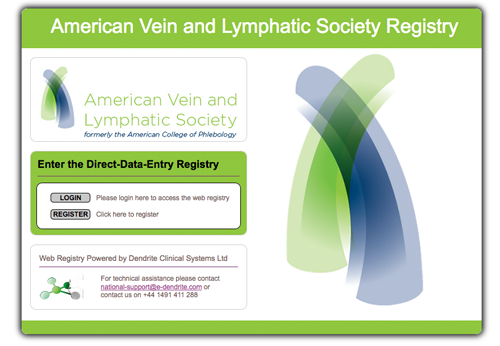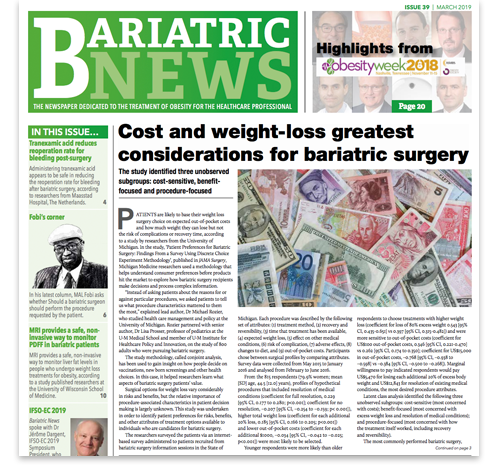Dendrite to install new Data Analysis System in Al Babtain Hospital, Saudi Arabia
 Dendrite Clinical Systems has received an order to extend the clinical database system and install its new Data Analysis System at the Al Babtain Hospital, Dammam, Saudi Arabia. Dendrite’s unique clinical database system includes four types of analytics and reports:
Dendrite Clinical Systems has received an order to extend the clinical database system and install its new Data Analysis System at the Al Babtain Hospital, Dammam, Saudi Arabia. Dendrite’s unique clinical database system includes four types of analytics and reports:
- Visual dashboard
- Flexible data analysis tools
- Data export and filtering
- Clinical documents (such as operation notes and discharge summaries)
The Visual Dashboard facilitates real-time data analysis dashboard reflecting the required analysis/reporting needs. This dashboard can be available to the Registry Administrator (reflecting combined registry data) as well as to each registry user (reflecting their individual data).
Dendrite’s system incorporates exceptional data analysis tools allowing users to easily build their own visual analysis graphs with their data including:
- Building (and saving) new graphs
- Modifying existing graphs (excluding/filtering data)
- Creating different patient cohorts
- Automatically calculating key statistical values (e.g. median, σ, percentile, shift, etc.)
- Saving and exporting graphs/tables in various formats (PDF, PNG, JPG, SVG and XLS) e.g. for reports, presentations.
This tool includes several modules to build different types of graphs, including:
- Distribution analysis (analysis by one field, e.g. age distribution)
- Cross-tabulation (analysis by two fields, e.g. age by gender)
- Multi-cohort analysis (graphs combining multiple cohorts)
- Run analysis
- Shewhart analysis
- XmR
- CUSUM analysis
- VLAD
- Actuarial curves
- Funnel plots
- Timelines
- Events analysis
The Dendrite system also includes an in-built Web Intellect Report Editor (WIRE) tool enabling the local Database Administrator at the hospital to build templates for local clinical documents such as discharge letters, operation reports – allowing clinical users to automatically generate these documents for patients from the database system.
 Dendrite Clinical Systems is pleased to announce the prestigious journal, Obesity Surgery, has published a paper highlighting international bariatric surgery practice from the 4th Dendrite/IFSO Global Registry Report. The paper, ‘Bariatric Surgery Worldwide: Baseline Demographic Description and One-Year Outcomes from the Fourth Dendrite/IFSO Global Registry Report 2018’, (Himpens et al. Obesity Surgery. March 2019.
Dendrite Clinical Systems is pleased to announce the prestigious journal, Obesity Surgery, has published a paper highlighting international bariatric surgery practice from the 4th Dendrite/IFSO Global Registry Report. The paper, ‘Bariatric Surgery Worldwide: Baseline Demographic Description and One-Year Outcomes from the Fourth Dendrite/IFSO Global Registry Report 2018’, (Himpens et al. Obesity Surgery. March 2019. Dendrite Clinical Systems and The State of Kuwait Ministry of Health,
Dendrite Clinical Systems and The State of Kuwait Ministry of Health, Dendrite Clinical Systems and The American Vein and Lymphatic Society (formerly the American College of Phlebology) are delighted to announce the launch of the American Vein and Lymphatic Society Registry - a ‘real-time’ clinical database that will identify practice patterns for venous and lymphatic disease diagnosis and treatment across North America.
Dendrite Clinical Systems and The American Vein and Lymphatic Society (formerly the American College of Phlebology) are delighted to announce the launch of the American Vein and Lymphatic Society Registry - a ‘real-time’ clinical database that will identify practice patterns for venous and lymphatic disease diagnosis and treatment across North America. Dendrite Clinical Systems and the Society for Cardiothoracic Surgery in the UK are pleased to announce the SCTS Conference News 2019 newspaper is now available to view/download. This is the fourth successive year Dendrite has published the newspaper on behalf of the SCTS. The newspaper reports a multitude of presentations from the meeting including the latest and the best information on new technologies and techniques in cardio-thoracic surgery.
Dendrite Clinical Systems and the Society for Cardiothoracic Surgery in the UK are pleased to announce the SCTS Conference News 2019 newspaper is now available to view/download. This is the fourth successive year Dendrite has published the newspaper on behalf of the SCTS. The newspaper reports a multitude of presentations from the meeting including the latest and the best information on new technologies and techniques in cardio-thoracic surgery.  Dendrite Clinical Systems, the publisher of Bariatric News, is pleased to announce issue 39 of the newspaper is now available to view/download. The newspaper reports on research, technology, events and policy in the bariatric specialty, the latest clinical studies, policy changes and product news, the latest meetings and events, interviews prominent bariatric experts, and host debates between specialists on controversial topics.
Dendrite Clinical Systems, the publisher of Bariatric News, is pleased to announce issue 39 of the newspaper is now available to view/download. The newspaper reports on research, technology, events and policy in the bariatric specialty, the latest clinical studies, policy changes and product news, the latest meetings and events, interviews prominent bariatric experts, and host debates between specialists on controversial topics. Dendrite Clinical Systems in pleased to announce its clinical database system has been selected to collect, record and analyse data from the Obesity Research Biobank Syndicate (ORBiS) Registry. ORBiS is a network of multidisciplinary professionals working towards a common goal: to gain novel insights into obesity and weight management, and help translate these findings into improved patient care.
Dendrite Clinical Systems in pleased to announce its clinical database system has been selected to collect, record and analyse data from the Obesity Research Biobank Syndicate (ORBiS) Registry. ORBiS is a network of multidisciplinary professionals working towards a common goal: to gain novel insights into obesity and weight management, and help translate these findings into improved patient care. 


